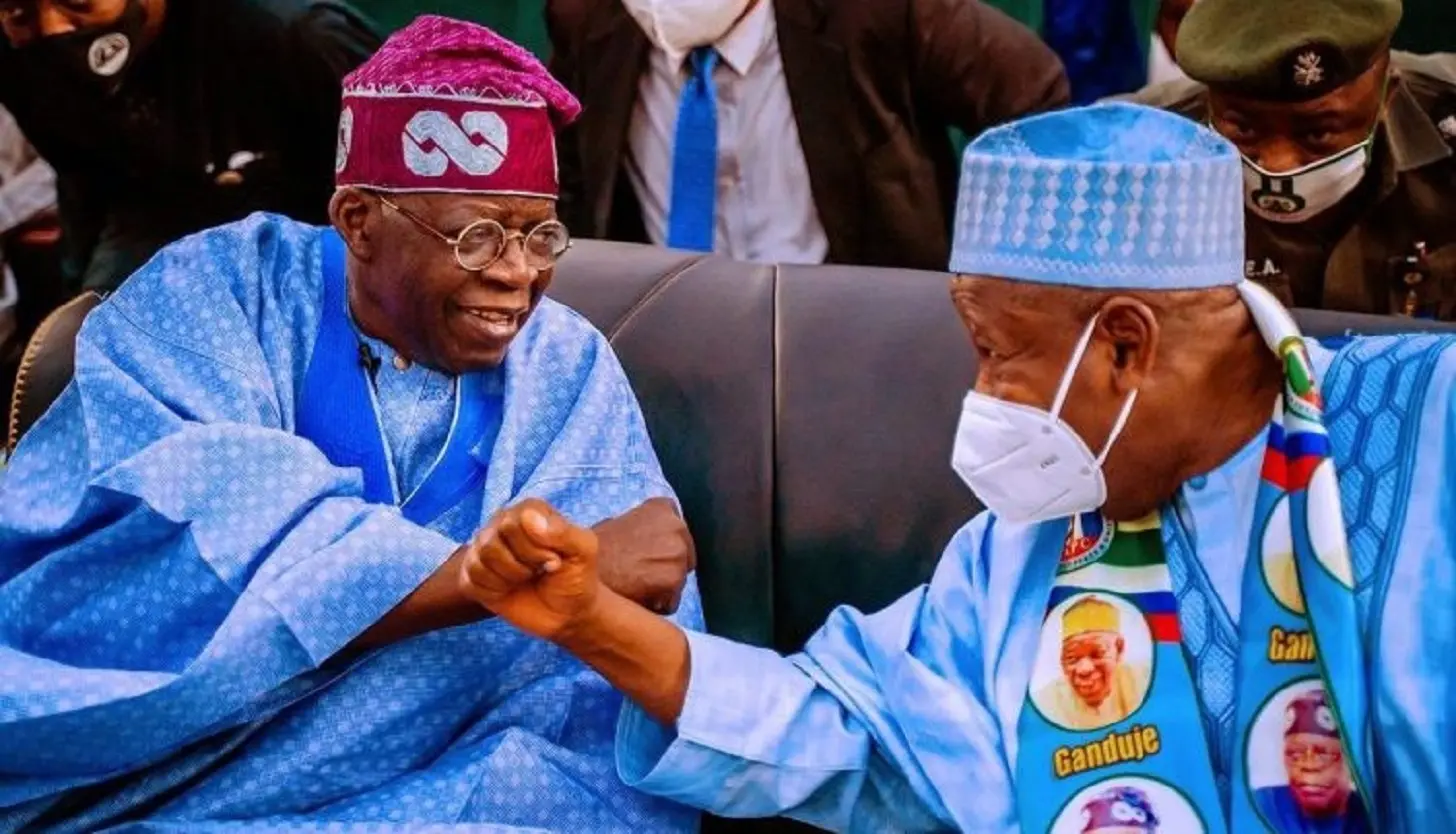Former Kano State Governor Abdullahi Umar Ganduje was reportedly compelled to step down as National Chairman of the All Progressives Congress to clear the path for Senator Rabiu Kwankwaso’s anticipated defection from the opposition to the ruling party.
Sources close to the development revealed that Ganduje’s resignation on June 27, 2025, while officially attributed to health reasons, was actually driven by high-level political calculations ahead of the 2027 presidential election. The move appears designed to prevent Kwankwaso from joining a potential opposition coalition being assembled by former Vice President Atiku Abubakar.
According to insiders familiar with the matter, the dramatic turn of events unfolded in the early hours of Friday when a senior security official reportedly visited Ganduje’s residence around 2 a.m. to demand his immediate resignation letter. The unusual timing and nature of the visit underscored the urgency with which the party leadership sought to facilitate the political realignment.
A source close to the former chairman expressed shock at the sudden development, stating that the resignation caught many party stakeholders off guard. The source revealed that a North East governor who has been particularly active in party affairs, along with a prominent North West politician with close ties to President Tinubu, visited Ganduje on Friday to offer consolation following his forced departure.
The political maneuvering appears centered on preventing Kwankwaso, leader of the influential Kwankwasiyya Movement, from strengthening opposition ranks ahead of the next electoral cycle. Sources indicated that President Tinubu received intelligence suggesting that Kwankwaso was seriously considering overtures from the Atiku-led coalition, prompting urgent action to secure his defection to the APC instead.
Kwankwaso’s potential switch to the ruling party reportedly hinged on one crucial condition: the removal of Ganduje as national chairman. The presence of his political rival at the helm of the APC would have made it virtually impossible for Kwankwaso to assume party leadership in Kano State, where both men have competing political interests and loyal followings.
The strategic calculation behind Ganduje’s removal reflects the APC’s broader efforts to consolidate political heavyweights from various states under its umbrella before the 2027 elections. Party strategists apparently concluded that sacrificing Ganduje’s leadership position was necessary to secure more significant political gains through Kwankwaso’s defection.
Intelligence reports suggesting that the opposition coalition had already approached Kwankwaso may have accelerated the timeline for Ganduje’s removal. The ruling party’s leadership appears determined to prevent the formation of a formidable opposition alliance that could challenge its electoral prospects in the next presidential race.
The development highlights the fluid nature of Nigerian politics, where personal rivalries and strategic considerations often drive major political realignments. Kwankwaso’s potential defection would represent a significant coup for the APC, given his substantial influence in Kano State and the broader North West region.
The forced resignation also demonstrates the extent to which the ruling party is willing to sacrifice sitting officials to achieve broader strategic objectives. Ganduje’s removal, despite his loyalty to the party and recent appointment, underscores the pragmatic approach being adopted in preparation for future electoral battles.
As the political landscape continues to evolve ahead of 2027, Ganduje’s departure may signal further reshuffling within the APC leadership structure as the party positions itself to maintain power and prevent the emergence of a unified opposition coalition.



















